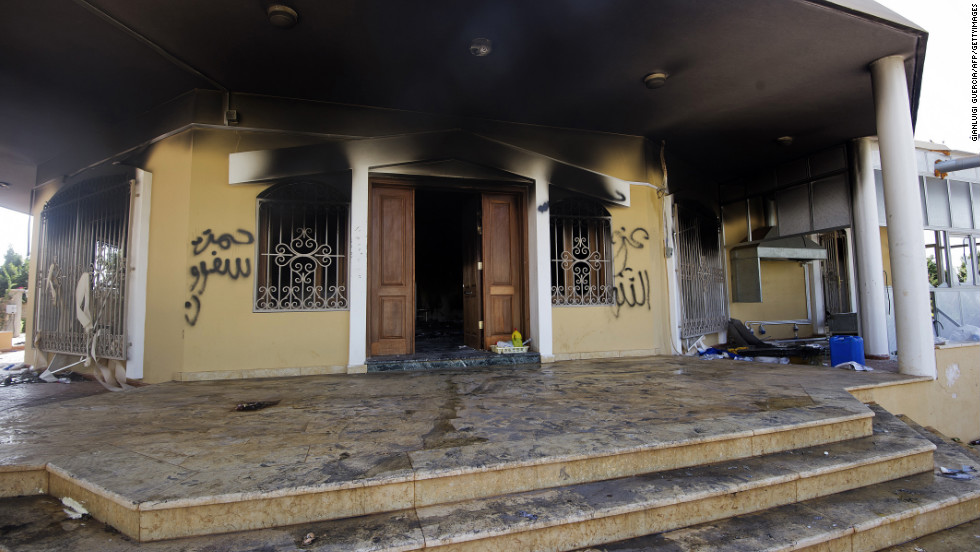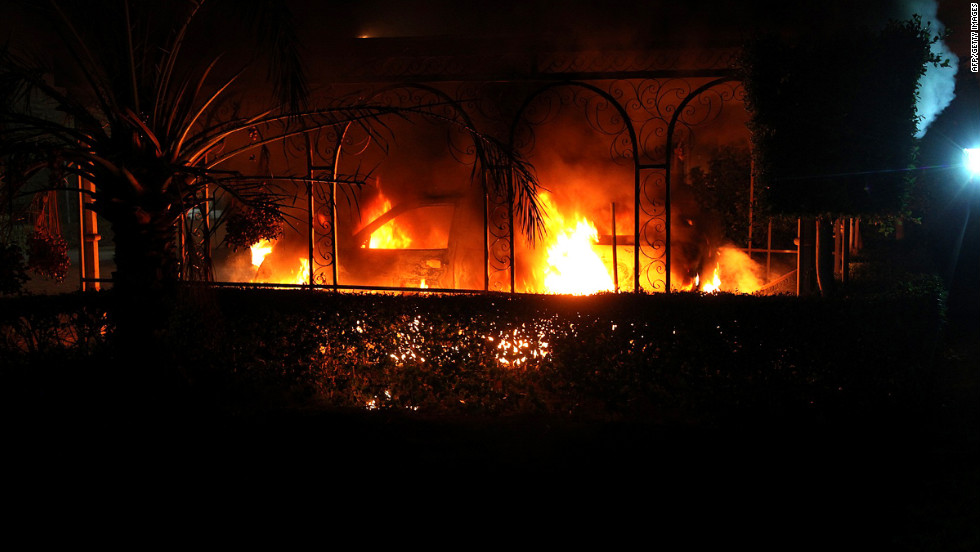Story highlights
- Senate committee finds that terrorists "walked right into the Benghazi compound unimpeded"
- Intelligence community, Defense Department, Congress, Obama administration also blamed
- "Flashing Red: A Special Report on the Terrorist Attack at Benghazi" released Monday
- The September 11 attack killed a U.S. ambassador and three other Americans
Terrorists in Benghazi, Libya, "essentially walked right into the Benghazi compound unimpeded and set it ablaze," a special Senate report on the September 11 attack that killed a U.S. ambassador and three other Americans says.
The bipartisan report, "Flashing Red: A Special Report on the Terrorist Attack at Benghazi," released Monday by the Senate Committee on Homeland Security and Government Affairs, cites "extremely poor security in a threat environment that was 'flashing red.' "
The State Department comes in for the major portion of blame for failing to respond to, even ignoring, repeated requests from U.S. staff in Benghazi for more security resources, especially more personnel.
The department, the report says, left it to Libyan security personnel to protect U.S. diplomats, even though those guards were unreliable and had "conflicting loyalties," a problem that it says was "deeply troubling, especially since this problem was recognized long before the attack."
In her preface to the Senate report, Sen. Susan Collins, ranking member of the committee, says the committee also found fault with the intelligence community, the Defense Department, the Obama administration and Congress.
"While the Defense Department attempted to mobilize its resources quickly, it had neither the personnel nor other assets close enough to reach Benghazi in a timely fashion," Collins says.
The report also underscores the need for the intelligence community to "enhance its focus on violent Islamist extremist groups in the region to improve the likelihood of obtaining such intelligence."
Lack of adequate funding for security also played a role, the committee found. "We have seen finger pointing about the lack of resources for embassy security," Collins writes, "but the budget is a shared responsibility. The inadequate security in Benghazi was a product of both budgets approved by Congress and of the desire of the Administration for a light footprint."
Critics say the administration gave conflicting and misleading statements on what sparked the attack, and the report agrees, concluding that the intelligence community recognized it as terrorism "from the beginning."
"Nonetheless, Administration officials were inconsistent in stating publicly that the deaths in Benghazi were the result of a terrorist attack," the report says.
"If the fact that Benghazi was indeed a terrorist attack had been made clear from the outset by the Administration, there would have been much less confusion about what happened in Benghazi that terrible night. The attack clearly was not a peaceful protest in response to a hateful anti-Muslim video that evolved into a violent incident. It was a terrorist attack by an opportunistic enemy."















































